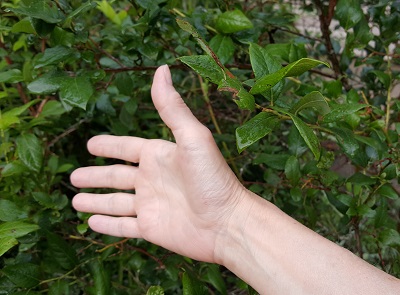I have never used heroin, I have never seen heroin in person, I have never personally seen someone use heroin, and I don’t know anyone actively using heroin at this time.
Even with a starting point of knowing nothing and no one, I have no doubt that 1) I could get heroin within 12 hours, and 2) I could get heroin faster than I could get someone treatment for heroin addiction.
 While I appreciate the logic of people who think limiting supplies of heroin or other drugs will serve as a barrier, it’s laughable. (If they can’t get it, they won’t use it, right? No supply equals no demand, right? Usage data from Prohibition and the War on Drugs really supports that, doesn’t it?)
While I appreciate the logic of people who think limiting supplies of heroin or other drugs will serve as a barrier, it’s laughable. (If they can’t get it, they won’t use it, right? No supply equals no demand, right? Usage data from Prohibition and the War on Drugs really supports that, doesn’t it?)
You know how you and I can get anything we want online? I even use Amazon.com to order my shampoo. Apply this logic: If I can order anything I want online, then that includes heroin. The supply will always be infinite.
This 2015 article from Forbes is cute and Hallmark-naive. Your teenaged son or daughter just might be ordering drugs online?
Your anyone – child, partner, parent, neighbor, boss, congressperson – can order drugs through the Internet.
So, let’s just put aside the irrelevant convo about limiting supply.
Now to my real subject:
WTF?! I have easier access to heroin than to treatment for heroin addiction?!
If someone came to me today and asked for help with heroin addiction, i.e. opioid use disorder, could I get them in to see a health care professional today for what the science says is effective treatment?
Absolutely not. In fact, it took me 3,000-words to explain to how to even begin to get treatment for addiction in my town.
With heroin use increasing, that any of us will be asked for help is moving from possible to probable.
Let’s say I wanted to extend a hand. I’ve got no more than 12 hours from last use before the person starts getting seriously ill from withdrawal.
See the medications listed by the U.S. Department of Health and Human Services to ease withdrawal from heroin and other opioids?
In my town, no health care professional at the ER, urgent care facility, or clinic staffed by primary care physicians can prescribe methadone or buprenorphine, the top evidence-based treatments for opioid use disorder. Even if I tried to take someone to a physician to lobby for clonidine? I might get somewhere if I could convince the physician that, yes, addiction is a brain condition identifiable on the molecular level, and, no, this person doesn’t deserve the agonies of withdrawal for what society stubbornly persists in believing, in spite of what the science says, they’ve brought on themselves through bad choices.
(And why is naltrexone listed on that U.S. government page? It can precipitate acute and severe withdrawal symptoms and is only recommended after complete detox. Oh my, I hope the local doc is up-to-date on this!)
Even if the physician were professionally convinced that medication were needed, the facility might limit what can be prescribed to people diagnosed with substance use disorder. I’ve taken people to health care facilities in my town, have been told what’s evidence-based can’t be prescribed, and have, literally, been given a Band-Aid and turned out, professional heads shaking in disapproval over my person – and over me for “enabling” the person and keeping them from “hitting bottom.”
And now the 12 hours is up and the person who came to me for help with heroin addiction is beginning to ooze from every opening: sweat, mucus, vomit, diarrhea. The meds we might have gotten aren’t staying down…
And people in withdrawal from heroin, left unattended, can die.
What, my dear fellow citizen, would you do?
. . . . .
Try this experiment. At your next medical appointment, ask your health care professional a hypothetical question: “If I told you I were addicted to heroin and wanted help with it today, what would happen?” Listen for what the treatment would be and how quickly it would occur. In particular, listen to what would happen to your one precious body and mind in the 12-hour window before withdrawal kicks in. Become aware of how you feel and what you think about what you hear.
And then imagine how you would feel and what you would think about the answer if you were trying to get help for a loved one…
If you care to post your experiences in the comments, I would welcome hearing them.

